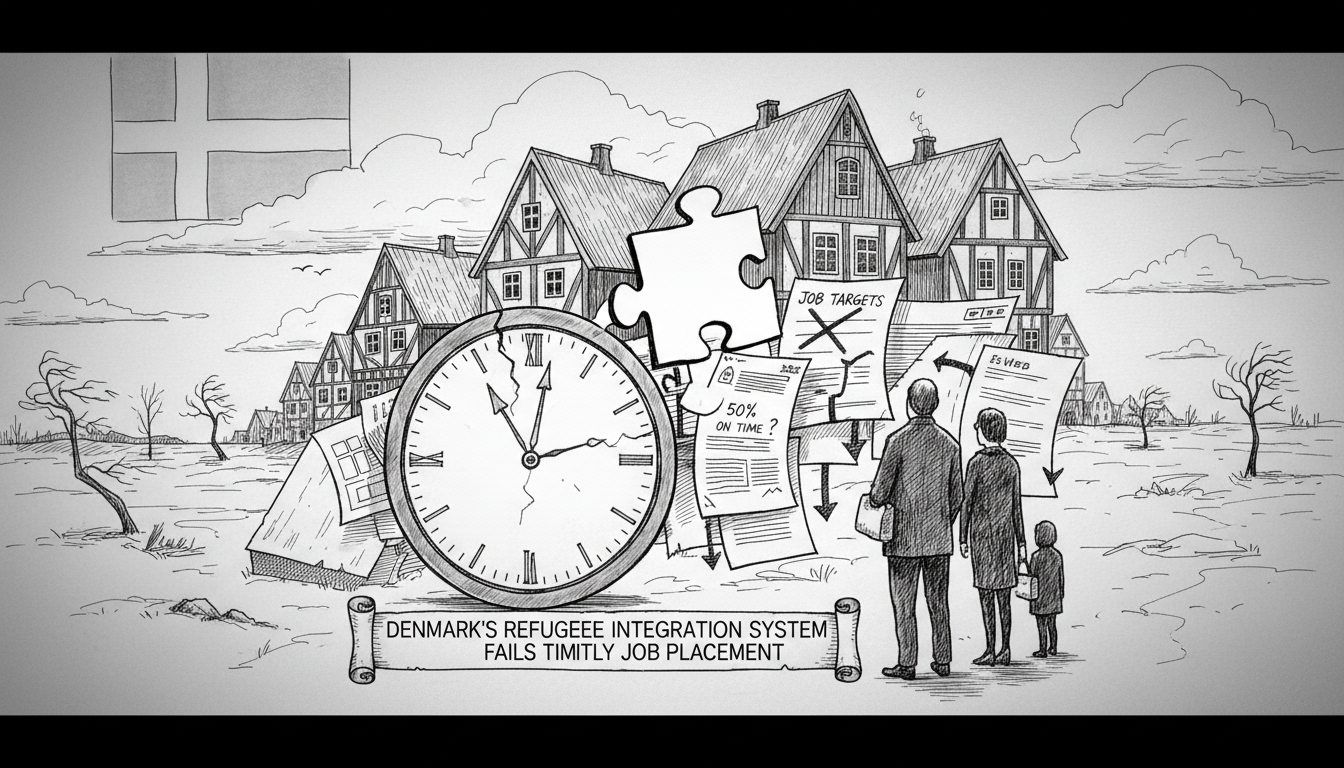Denmark's integration system struggles to provide legally required employment assistance to refugees. Only half of job-ready refugees receive their first business-oriented offer on time. Just 29 percent get subsequent offers within the mandated six-week period. These findings come from the State Auditors' critical review of integration efforts.
The audit examined performance from late 2021 through late 2024. Authorities must provide business-focused integration offers within one month of arrival. They must deliver follow-up offers within six additional weeks. One-fifth of refugees received no offers during the entire three-and-a-half-year review period.
The State Auditors expressed clear dissatisfaction with the Ministry of Immigration and Integration. They found the ministry failed to adequately support municipalities in meeting legal requirements. Municipalities also faced criticism for their handling of mandatory integration services.
This failure carries economic consequences for Denmark. Delayed workforce integration means longer dependency on public benefits. It represents missed opportunities for Copenhagen businesses facing labor shortages. The Øresund region's competitive economy depends on efficient talent utilization.
Danish companies like Ørsted, Vestas, and Maersk increasingly seek diverse talent. They need workers for renewable energy projects and global trade operations. Delayed integration creates bottlenecks in crucial sectors.
Integration Minister Kaare Dybvad faces pressure to improve system performance. The ministry acknowledges using available knowledge about problem areas insufficiently. Refugees wait too long to enter the labor market as a result.
Contrasting with employment program failures, language education performs strongly. Ninety percent of refugees receive Danish language training referrals on time. Only six percent experience delays in language program placement.
Contract procedures also meet high standards. Municipalities establish integration contracts promptly in 94 percent of cases. These contracts outline specific employment or education goals for newcomers.
The audit reveals a divided system. Language training and administrative procedures function well. Employment-focused integration lags significantly behind. This imbalance undermines Denmark's comprehensive integration model.
International businesses monitoring Copenhagen's investment climate note these findings. Efficient integration systems support economic growth and social stability. Delays affect Denmark's reputation for effective public administration.
The State Auditors employ varying criticism levels in their reports. They classified this assessment as medium-level criticism. It signals serious concern without representing the most severe evaluation category.
Municipalities now face increased scrutiny of their integration service delivery. The ministry must improve coordination and support for local authorities. Both levels share responsibility for meeting legal deadlines.
Refugee integration represents both humanitarian obligation and economic opportunity. Denmark's aging population needs new workers across multiple sectors. Delayed workforce entry costs individuals and society valuable productive capacity.
Copenhagen business districts need diverse talent to maintain competitive advantage. The city's green transition and digital transformation require skilled workers. Efficient integration systems support these strategic economic priorities.

